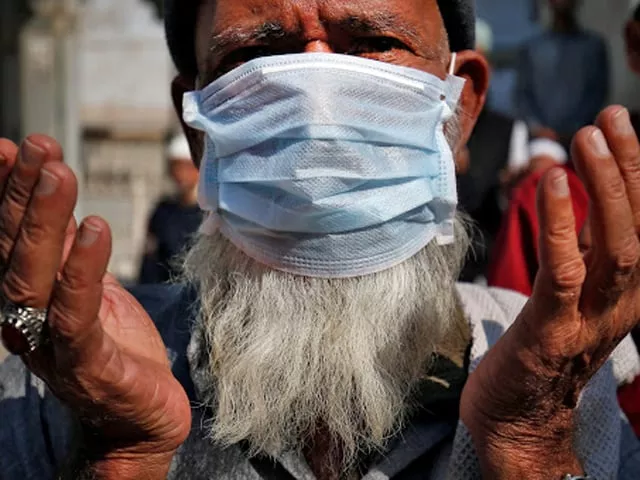Covid-19: backdrop and beyond
For strategies, we have to take a step back and see what we have done to ourselves over the last hundred years or so
Despite an initial performance differential across countries in the containment of Covid-19, the jury is still out on the final outcomes till sweeping lockdowns are relaxed in China and elsewhere and life resumes some modicum of normalcy. We are fighting SARS-CoV-2 for survival but we know that it is an unequal fight: the virus not only outnumbers us by a billion times but is also smart enough to use our body as its chariot of war. Worse still, in this fight, little is known of the virus in terms of its virulence, its mode of transmission and its pathogenic pathways. In this contest for survival, humans have no weapon in their armoury except their wits. The battle has already cost us over 114,000 lives; a much larger number is likely to suffer life-long morbidities.Looking beyond mortality and morbidity, we may recall that humans have established their supremacy over this planet against sturdier, faster and more athletic competitors (lions, elephants, cheetahs, monkeys) by capitalising upon their extraordinary superiority to connect and cooperate with each other. While herd size in other mammals seldom goes beyond a hundred, humans have always successfully raised legions of soldiers or workers in tens of thousands since time immemorial. Most of what we observe today as a triumphal display of human civilisation is rooted in our ability to cooperate among ourselves at a scale larger than the limits of kinship. National prosperity today depends on the degree of sophistication of a country’s products and services and such degree of sophistication is directly proportional to the scale and depth of cooperation and hence, exchange. Human cooperation on a large scale, in turn, is a derivative function of our ability to socially connect and interact with each other. The ongoing contagion has turned our penchant for interaction into our Achilles heel by using it as an infection highway; necessitating social distancing as a consequence.
Under immense pressure to act due to the unexpected infection and mortality rates on the Italian peninsula, global public health professionals and national leaderships, knowing nothing better to do, have rightly resorted to blanket lockdowns as a strategy for social distancing. It is a sensible strategy for a start or as a periodic measure or even as a tactic of last resort for this strain of virus till an antidote is discovered. But it is not a sustainable strategy in our medium- and long-run struggle against the pathogens.
For medium- and long-run strategies, we have to take a step back and see what we have done to ourselves over the last hundred years or so. In fact, a steady-state equilibrium evolved between animals, infectious agents, nature and humans over millennia of co-existence (along with attendant immunities) has been disturbed by a four-fold increase in population within the past century. This population explosion coupled with easier travel and economic globalisation has resulted in the colonisation of virgin ecological niches and slack social spaces, thus creating a much larger sphere of interaction between pathogens and humans, a kind of enlarged zoonotic zone. This enlarged zoonotic zone along with an indiscriminate use of antibiotics (a scarce non-renewable life-saving resource) has serious consequences in terms of emergent and re-emergent pathogens over the next century or so.
SARS in 2002, MERS in 2008, Swine flu in 2009 and Ebola in 2014, are all grim reminders of the frequency of the upcoming pathogenic threat we face. Covid-19 did not arrive without warning and SARS and Ebola were lucky escapes. In the prophetic words of physician Paul Caulford who fought SARS at Scarborough Hospital, Toronto, in December 2003, “SARS brought one of the finest publicly funded health systems… to its knees... Without substantive changes to… health care, both locally and on a worldwide scale, we risk… annihilation of millions of people, either by this virus, or the next.”
Control and eradication of pandemics is a global public good that cannot be delivered with either poorly functioning national public health systems or with increasingly violated ecological zones. Fixing national public health systems and preserving ecological zones is no more a local public good; any view to the contrary essentially assumes away open economy and international trade. The current episode of Covid-19 has sufficiently demonstrated that surplus wealth cannot be created or preserved if pandemics hit the global system of wealth creation and exchange even twice in a decade. The Organisation for Economic Co-operation and Development (OECD) estimates that Covid-19 alone is likely to cut its GDP by more $10 trillion. This GDP loss is more than five times the total annual healthcare expenditure in non-OECD countries. Neither global islands of prosperity nor walled compounds of affluence within poorer nations can survive the onset of this new age of microbial socialism. Covid-19 is probably the last clarion call for prosperous countries as well as influential and prosperous classes within less developed countries to come forward and start coughing up the money to fix the national public health systems and ecological zones.
Published in The Express Tribune, April 14th, 2020.
Like Opinion & Editorial on Facebook, follow @ETOpEd on Twitter to receive all updates on all our daily pieces.


COMMENTS
Comments are moderated and generally will be posted if they are on-topic and not abusive.
For more information, please see our Comments FAQ